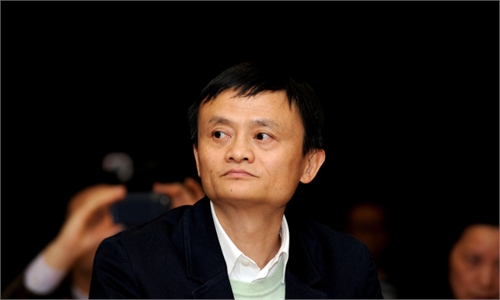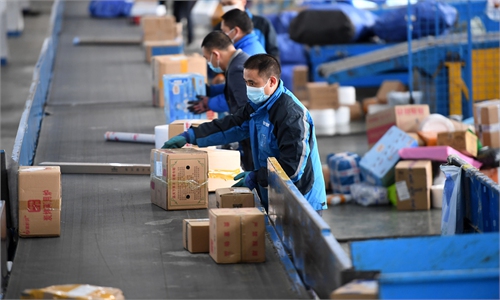Hangzhou signs strategic deal with Alibaba, draws up measures to support platform economy

Alibaba's headquarters in Hangzhou, East China's Zhejiang Province Photo: cnsphoto
The Hangzhou city government in East China's Zhejiang Province signed a comprehensive, deepened strategic cooperation agreement with Alibaba Group on Tuesday, signaling support for the platform economy's growth in a healthy, regulated way, according to the official Zhejiang Daily.
Specific measures to support the standardized and healthy development of the platform economy have been drawn up, the report said.
Alibaba is a Fortune 500 company based in Hangzhou. In 2013, the city and Alibaba signed a strategic cooperation agreement, opening in-depth cooperation between a city and an enterprise.
Liu Jie, member of the Standing Committee of the Communist Party of China (CPC) Zhejiang Provincial Committee and secretary of the CPC Hangzhou Municipal Committee, also made a visit to Ant Group, Alibaba's fintech affiliate on Monday morning.
During the visit, Liu encouraged the company to seize opportunities, take advantage of the situation, keep the right direction, strengthen innovation, continue to enhance the core competitiveness of enterprises, and strive to promote the development of digital trade.
Chinese authorities have signaled stronger and unswerving support for the private sector and online platforms in recent days, asking firms to care for both development and regulation, after a key economic meeting encouraged the private sector and digital economy platforms to "fully display their talent" in leading development, creating jobs and competing internationally.
On December 19, just two days after the annual Central Economic Work Conference, Yi Lianhong, who was appointed as secretary of the CPC Zhejiang Provincial Committee earlier in December, made a visit to Alibaba.
During the visit, Yi urged the company to strive to be "a model student of normative development, a leader in innovative development, and a supporter of integrated development," while asking it to adhere to development and regulation and to unleash innovation dynamics and enhance core competitiveness.
Yi also stressed that capital investment and expansion has to be regulated, according to the report. Yi also visited communities, science and technology innovation platforms, and cultural heritage parks.
Wei Jianguo, vice chairman of the China Center for International Economic Exchange and former vice minister of commerce, told the Global Times that "the relevant statement from policymakers has given all platform economy companies reassurance and made them feel that they can develop with confidence, thus leading the development of various tracks of the economy."
However, observers stressed that the move, rather than being a "policy shift" as some have misunderstood, is in line with the central government's supportive attitude to the private economy, and normalized regulation will run alongside their development to guide their growth in a sound and stable way.


